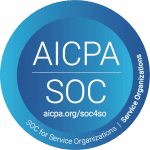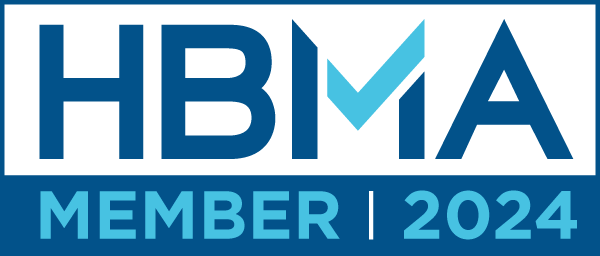A Path to Financial Excellence: Maximizing Profits Through Optimized Revenue Cycle Management
Addressing issues in your revenue cycle might initially seem overwhelming, something like a complex medical treatment plan, but rest assured, the journey to fiscal excellence follows a well-defined strategy proven to yield exceptional outcomes. The percentage of revenue and efficiency gained varies, depending on existing conditions (just how sick is the patient?) but the objective is consistent for medical practices large and small: to achieve and maintain optimal fiscal health.
Consulting with a revenue cycle management (RCM) solutions provider, such as PHIMED, before embarking on this journey is a sound strategy. You know your practice; they know the industry.
‘Reliable, trusted partners enable healthcare organizations to achieve their RCM goals.”
“Many elements of the revenue cycle have become commoditized, so when it comes to partnering, organizations often find themselves in a race to the bottom to find the cheapest alternative. This is bad for the revenue cycle and for employees,” states an article in Becker’s Hospital Review.”
PHIMED, for example, will evaluate the ROI of your investments in human resources, processes, and technology and provide strategic recommendations for improvements following these steps:
- Evaluate your current workflow process and identify areas of difficulty.
- List tasks that can be automated, taking advice from your RCM partner.
- Ensure your staff is continuously trained and that you keep an eye on your KPIs.
- Refine your process for continuous improvement.
Adhering to these steps will likely result in increased revenue while simultaneously improving staff morale and patient experience. Moreover, an optimized RCM and well-trained staff will free up more time to devote to your passion: practicing medicine.
Assess Your Current Systems
Empower your staff to help. Begin by assigning a task force, or a trusted associate, to assess your existing processes, from patient induction to claim settlement. Depending on the size of your practice, ensure there are no redundancies; for instance, two departments performing the same task. Identify and document the pain points, bottlenecks, or inefficiencies that cause additional work or delayed payments. Evaluating data on claim denials, days in accounts receivable, and payment trends can provide valuable insights on streamlining operations and reducing time and money lost through manual effort.
Again, the advantage of collaborating with a solutions provider is that you can compare your findings with industry best practices. You may be content with your accounts receivable aging, but industry standards suggest you could process claims faster with fewer delays in accounts receivable. This principle holds true across all areas of your practice.
Automate Wherever Possible
In today’s medical field, AI automation tools can bring significant efficiency to your organization. Practice management and billing software feature algorithms and pre-populated data that validate billing codes, minimizing data entry errors and flagging omissions that often lead to claim rejections and other issues. Moreover, RCM solutions featuring robotic process automation (RPA) can handle tasks such as patient appointment reminders, verifying insurance eligibility, updating patient portal information, submitting accurate claims electronically, and much more.
The benefit of this level of automation will be twofold. First, it will mitigate many of the errors and omissions that cause payment collection delays and claim rejections. Secondly, it will alleviate staff from many tedious tasks, reducing burnout and improving job satisfaction. Increased automation allows your staff to engage in more rewarding, value-oriented tasks and use their additional time to enhance overall patient engagement and satisfaction.
Establish KPIs and Develop Cross Functional Training
Using Key Performance Indicators (KPIs) in managing medical revenue cycles can assist healthcare organizations in tracking and improving various aspects of their financial performance. KPIs can identify areas where your organization is underperforming and provide data and metrics displayed on an easy to understand dashboard used as the basis for informed decisions regarding improving financial performance.
KPIs increase financial performance transparency, improving accountability and communication among stakeholders. You will also be better prepared to track compliance with various regulations and guidelines, which can help organizations avoid penalties. Most importantly, tracking patient satisfaction and other aspects of patient engagement can enhance care and boost patient loyalty. For more information on KPI’s, download our e-Book here.
Make continuous training for your staff on regulations, payer requirements, and coding updates part of your culture. The right RCM system will update as needed, easing some of the burdens on the staff. Still, cross-training team members on multiple functions foster a versatile workforce capable of adapting to changing circumstances or unexpected absences.
Keep training initiatives current by regularly revisiting topics, updating materials, and addressing evolving workflow processes within your practice. Provide opportunities for refresher classes and individual coaching sessions as necessary. Continuous learning efforts encourage mastery of the software, ensure optimal performance, and prevent skill fade over time.
PHIMED provides clients with training programs tailored specifically to coding and administrative personnel, enabling them to leverage the full benefit of PhyGeneSys. We work closely with clients on code sets and software-specific functionality, creating customized training modules related to diagnosis and procedure coding systems such as ICD-10 and 11 and on how to navigate specific features available in your RCM platform.
Optimizing Revenue Cycle Management (RCM) is crucial to the financial health of a medical practice. Like all good things, it requires work, a willingness to change, and collaboration.
For additional information on PhyGeneSys and PHIMED, call 800-909-7240 or email info@phimed.com.









